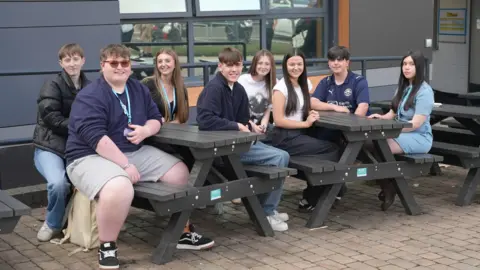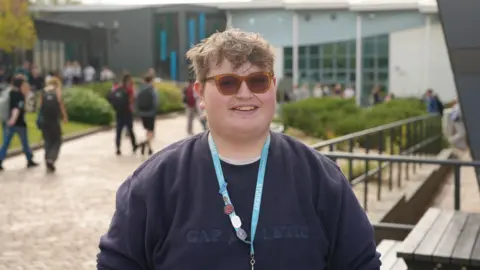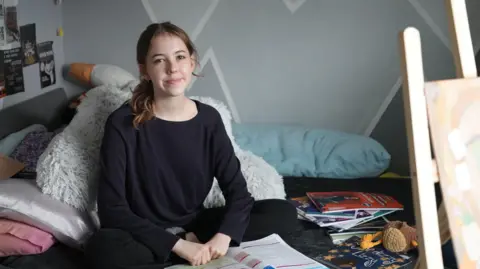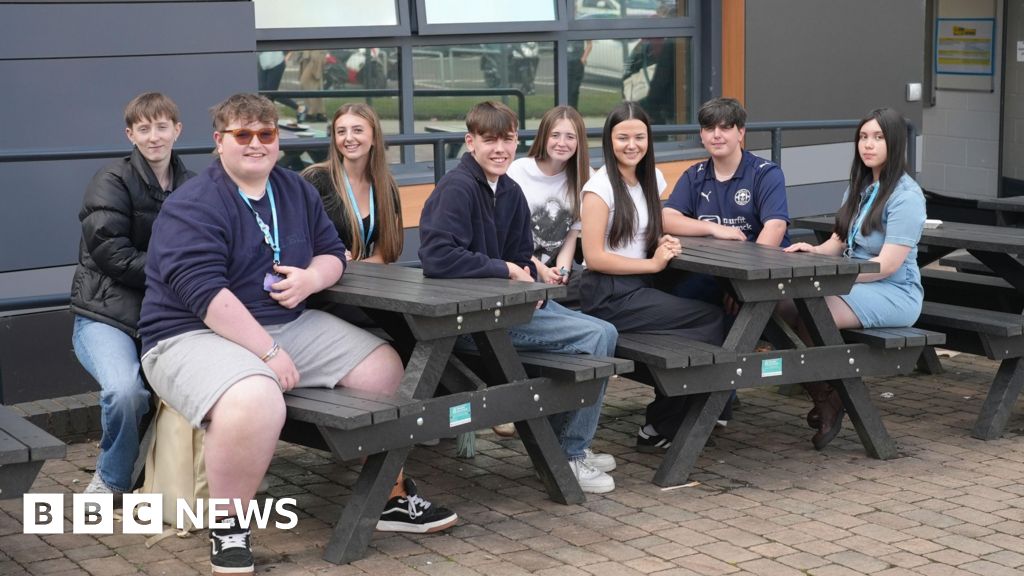Branwen JeffreysEducation Editor and
Erica Witherington
 BBC
BBCWhen lockdown started, college student Sam was living with his mum because his parents were separated.
Then his dad died unexpectedly, leaving him feeling that “something had been stolen” from him.
His experience is one of many being highlighted as the Covid-19 public inquiry prepares to look at the pandemic’s impact on children and young people.
A new report – seen exclusively by the BBC – includes individual accounts of 600 people who were under 18 during the pandemic.
They include happy memories of time spent with family, as well as the impact of disruption to schools being moved online, social isolation and the loss of relatives.
The inquiry will start hearing evidence on these issues from Monday 29 September.
‘I lost a relationship’

Wigan resident Sam was 12 during the first lockdowns and says he found it hard to understand the rules that prevented him spending more time with his dad.
His dad’s death left him struggling with regrets that he had “lost a relationship” because of the isolation before his father’s death.
“I do feel deep down that something has been stolen from me,” he says.
“But I do know that the procedures that we had to go through were right. It was a bad situation.”
Now 17, Sam’s resilience has sadly been tested further after the loss of his mum, who recently died from cancer.
But Sam says that strength he built up during Covid has helped give him “the tools to deal with grief alone”.
‘Trying to catch up on the lost moments’
Kate Eisenstein, who is part of the team leading the inquiry, says the pandemic was a “life-changing set of circumstances” for the children and teenagers who lived through it.
The impact of the pandemic set out in the testimony is hugely varied and includes happier memories from those who flourished in secure homes, enjoying online learning.
Other accounts capture the fears of children in fragile families with no escape from mental health issues or domestic violence.
Some describe the devastating sudden loss of parents or grandparents, followed by online or physically distanced funerals.
Grief for family members lost during the pandemic is an experience shared with some of Sam’s college classmates.
Student Ella told the BBC that losing her granddad during Covid had made her value spending more time with her grandma.
It is one of the ways in which Ella says she is trying to “catch up on the lost moments” she missed during Covid.
Living life online
One almost universal experience for children living through the pandemic was much of life shifting to online platforms.
While this allowed family connections and friendships to be maintained, Ms Eisenstein said some children had darker experiences, spending up to 19 hours a day online, leaving them “really anxious”.
“Some told us how they started comparing their body image to people online, how video games and social media distracted from their learning,” she said.
Most worrying, she said, were the accounts revealing an increased risk of adults seeking to exploit young children online, including sending nude images and inappropriate messages.
The remarkable variety of experiences, both positive and stressful, adds up to what she describes as “an unprecedented insight into children’s inner world”.
Aaliyah, a student at Winstanley College near Wigan, says the social isolation she experienced aged 11 led to her spending hours looking at social media, which began altering her self-confidence.
“With the content I was seeing online, I’d start to look in the mirror and go, ‘I could change that about myself,’ or ‘I don’t really like that about myself,'” she says.
Lasting effects

The inquiry is also expected to hear about the experiences of children still living with long Covid, like Avalyn, now 16, who became ill with the virus in October 2021.
While schools were beginning to return to normal, Avalyn was struggling with a deep and debilitating fatigue, and eventually left school for home education.
It took a year to get a formal diagnosis of long Covid and specialist advice.
“I enjoyed being in school, I enjoyed being social and seeing people, and then suddenly that was taken away from me very quickly,” Avalyn says.
Before long Covid, Avalyn says she was sporty at primary school and enjoyed acrobatics.
Like lots of other children her age, Avalyn has shown determination and resilience to achieve the things that might not have been so difficult in other circumstances, and she has now passed four GCSEs.
“I knew I wanted to do GCSEs to prove to myself especially that I still had the ability to do what everyone else was doing,” she says.
She still goes to a performing arts group, which allows her to join in as much or as little as she can manage.
Avalyn admits “it’s weird to say”, but in some ways she is “grateful” to have had long Covid, because of the things she has achieved during her long spells at home.
She has written, illustrated and self-published two children’s books and spent more time on her art.
While the path ahead is not straightforward, she says she is optimistic of finding a way to study and get into work.
The inquiry plans to hear evidence on the impact of children and young people across four weeks from 29 September to 23 October.

